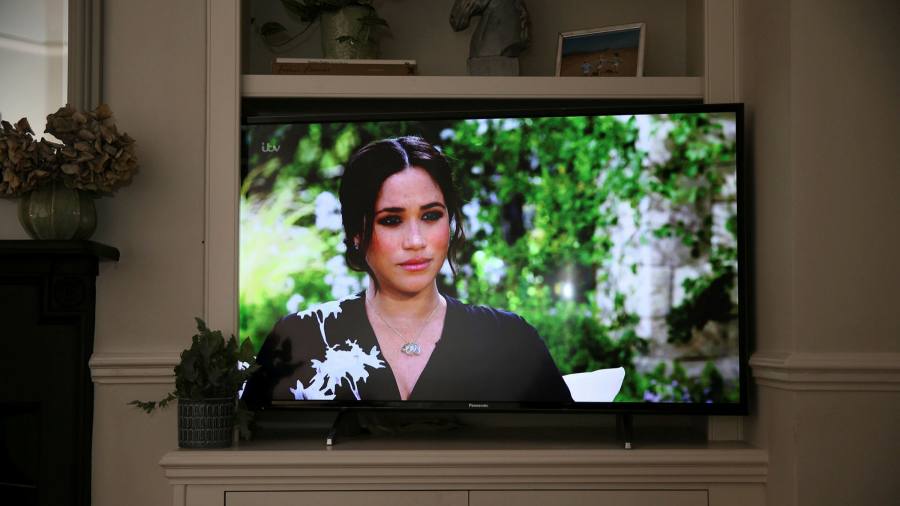[ad_1]
The British public is divided over the tell-all royal interview. Some see it as a courageous exposé, others as an exercise in whingeing. But there is no doubt it was a win for broadcaster ITV. Some 12.4m viewers tuned in to the two-hour show, creating an ad magnet for shops, toothbrush makers and comparison websites.
Advertisers effectively pay per set of eyeballs. That made the Monday slot roughly three times as lucrative as the crime drama it deposed.
ITV could use the break. Coronavirus last year wiped out advertisers and stymied production of shows. Revenues dropped 16 per cent to £3.26bn. Adjusted group ebita of £573m beat market forecasts but was still down by a fifth. Cost-cutting helped contain losses, but roughly five-sixths of the £116m saved came from temporary measures such as slashed directors’ pay and performance-related cash bonuses.
The pandemic also put a dent in ITV’s new strategy to diversify into a broader media group. This was instigated by Adam Crozier and has been embellished by his successor Carolyn McCall.
It had been scoring some successes. In 2019 revenues from studio productions — making movies and shows for outside platforms such as Netflix — overtook those from advertising. That flipped back last year, with total ad revenues of £1.58bn versus £1.37bn from studios.
In the short term, that proves a fillip. Production eats up cash, making it less profitable: margins on the basis of adjusted ebita, which adds back exceptional items including high-end production tax credits, came in at 11 per cent, down from 15 per cent the previous year and half those creamed off broadcasting.
Longer term, the reversal is not so helpful. ITV is a legacy commercial broadcaster trying to turn itself into a media company able to play on the international stage. This pits ITV against the likes of Netflix while counting the latter as a client. The company created some compulsive viewing — smirk if you will, but Love Island has been commissioned in 13 countries — and built streaming hubs. BritBox gives it a modest streaming toehold with a subscription income stream.
That speaks to ITV’s real issue. It has a decent strategy but is moving too slowly and is too small in a business where speed and scale increasingly matter. ITV claims more than 2.6m subscribers globally. That is one 80th of Netflix’s base. Production pales beside peers too. For an industry hatching new competitors by the day, that is a big handicap. For their part, ITV’s shareholders appear to be as divided as Brits on the self-exiled royals: shares plunged soon after the bell and jumped back up by mid-morning.
If you are a subscriber and would like to receive alerts when Lex articles are published, just click the button “Add to myFTâ€, which appears at the top of this page above the headline
[ad_2]
Source link





